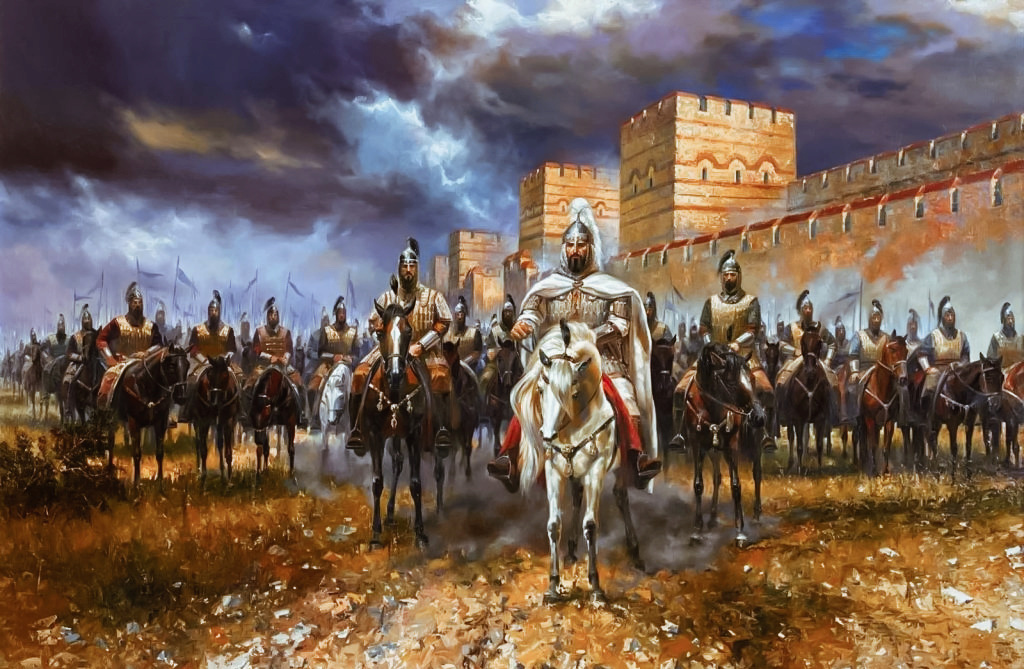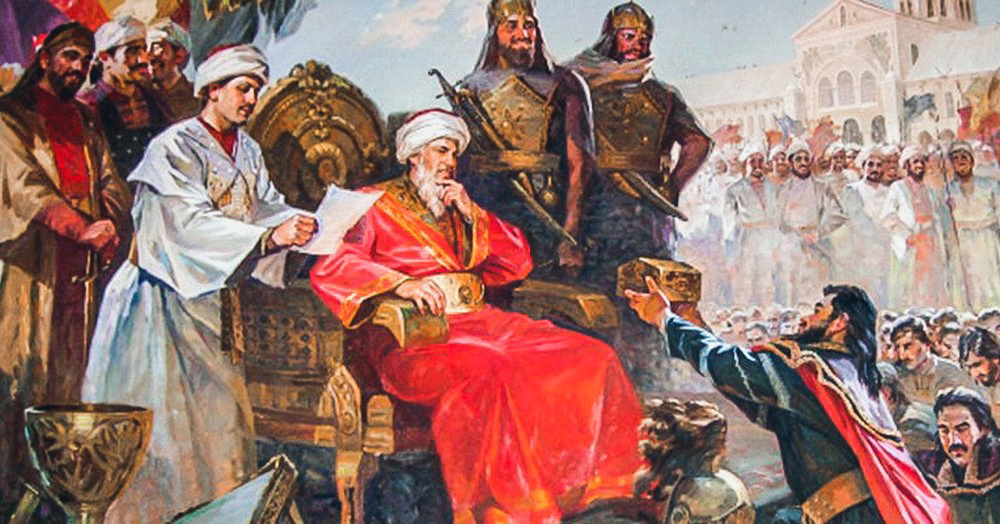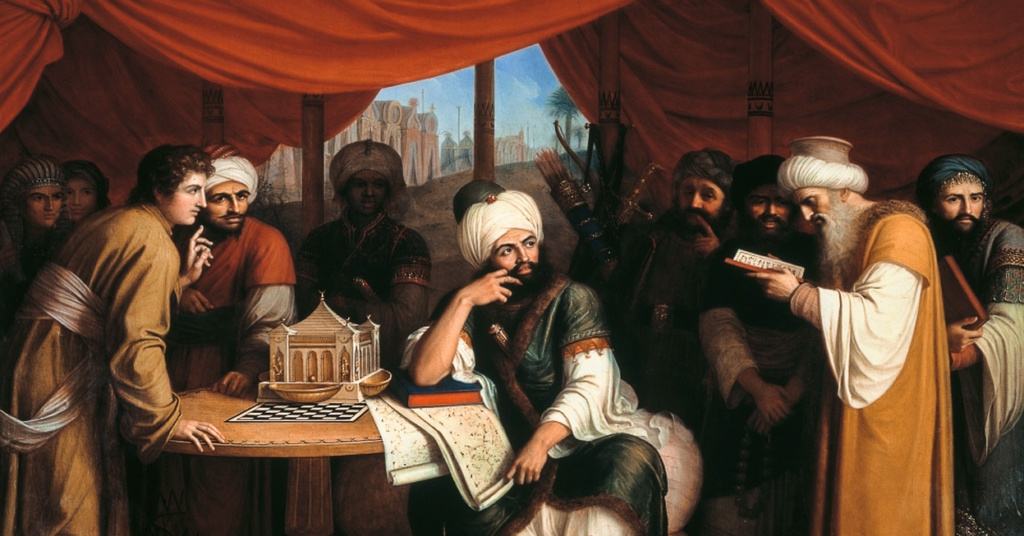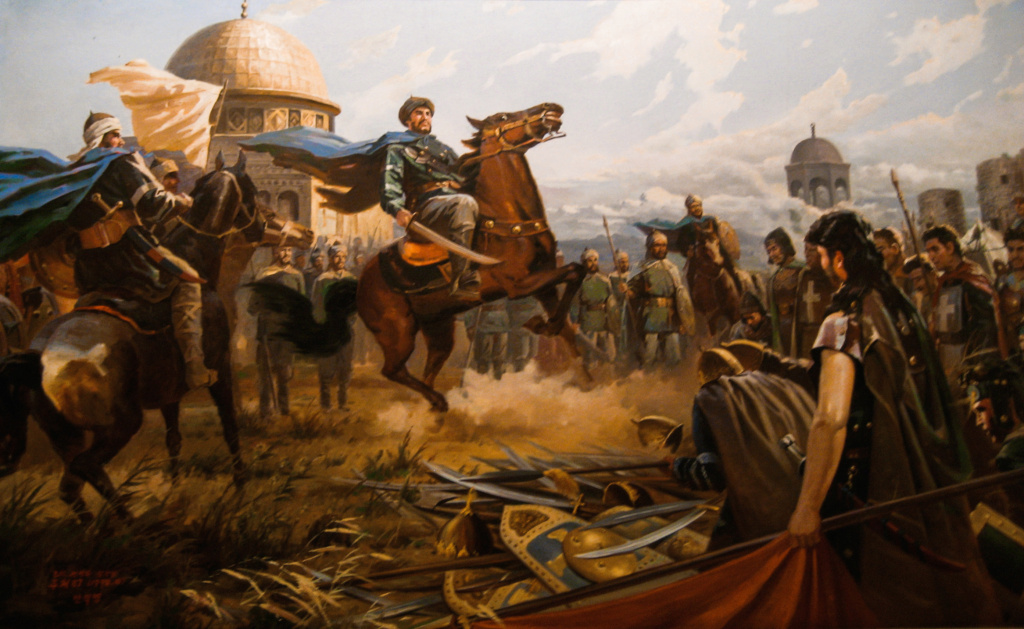The Arab “invasions” in the narratives of the vanquished: Towards a re-evaluation of Arab-Islamic history

Arab authors ignored the voice of the other, and most of their works on “invasions” are nothing more than a new one every time, pruning the Arab-Islamic novel without giving any importance to other people’s narrations, in a manner similar to the saying: “We reinvent the wheel.”
The gap is almost huge between what we see ourselves and what the world sees in us, so how is the way to bridge it then?
Perhaps the beginning of a re-evaluation of Arab-Islamic history!
… Then what if we see our image in the mirrors of others as well, instead of being satisfied with a single view of history with which we make our present?
Well, no two will disagree that the " invasions " represented the founding event of Arab-Islamic history...
The Arabic writings are full of the story of the " invasions ", as they include a lot about the Byzantine and Persian rulers and the dignitaries of the countries they reached, and draw some aspects of the social and economic life of those peoples.
But... this novel, which is classic in the Arab world, is faulty because it was not based on the original sources of the writers of the conquered peoples, nor was it concerned with what those “invasions” represented for the peoples that the Arabs came as invaders.

In his book “The Arab invasions in the Narratives of the Oppressed,” the Lebanese researcher and writer Hussam Itani tries to tell the story of these “conquests” as seen and narrated by the news of the defeated.
Itani says, in presenting “The Reasons for the Revelation” of his book, which was published in 2011 by “Dar Al-Saqi,” that those who dealt with the “invasions” in the Arabic writings fell into the temptation of the discourse emanating from the self and directed at it, and the case is that the “invasions” targeted the countries and lands of the other Rather, it sought to change his faith and include him in the new religion.
Arab authors, in the view of the researcher, ignored the voice of the other, and most of their works on the subject are nothing more than being new every time, pruning the Arab-Islamic novel without giving any importance to other people's narrations, in a manner similar to the proverb that says: “We reinvent the wheel.”
Thus, Itani wrote this research, aiming his eyes to come up with Arab-Islamic history from a duality that fluctuates between the glorifying narrative of the Arab heroics in the “invasions”, and the underestimating view of some orientalists of all that the Arabs have done throughout their history … that duality that dominates the Arab intellectual production, today In a way that makes barriers erect high between what Arabs and Muslims draw of an image of themselves and what the world sees in them.
“The Arab invasions in the Narratives of the Overpowered,” then, is a contribution to involving the Arabs in drawing their image based on an accurate reading of what has accumulated over more than two thousand years of connections between them and other peoples and civilizations.
The researcher says... two thousand years, not fourteen centuries, as is customary, because many components of the stereotype about Arabs existed among the Romans, Persians, and other peoples before the advent of Islam.
Itani confirms that the idea he puts forward for public discussion in his book is not related to the blackening or whitening of the image of the “invasions” for the contemporary reader, but is summed up in transferring the words of the defeated other at the time, to the space of Arab critical awareness and including it in what constitutes the image of the Arabs about themselves in the past, and from Then they understood what interfered in making the world's picture of them today.

“The Arab invasions in the narratives of the vanquished” is not a search for “historical truth,” stresses Itani, who adds in his introduction that the truth may be lost forever, and we will not be able in any way to achieve certain knowledge based on scientific evidence.
However, from the writings left by Arab, Muslim, Zoroastrian, and Christian historians of various nationalities, we can see the political, economic, and cultural reality that moved the ancient world, and the mechanisms of this movement, and then put a huge phenomenon such as the “invasions” within a framework close to rational perception.
It is surprising, according to the researcher, that the names of the Byzantine historians or the Syriac newsmen who lived through the “invasions” are completely unknown to non-specialists, while the narratives developed by Arab and Muslim historians are devoted as facts that are close to self-evident and do not accept discussion.
However, Itani acknowledges that the Arab-Islamic “invasions” are a very complex subject!
It is enough to look at the different accounts that Arab and Islamic sources mention of the events of the " invasions ", for the reader to realize the difficulty of encompassing them in one logically coherent and historically sequenced narrative...
So how if non-Arab and non-Islamic sources entered the attempt to formulate that narrative?
Many of the questions that Itani answers may be self-evident, and many orientalists have answered him, but he reproached the Arabs in general for distancing themselves from delving into them… Questions such as:
What are the reasons for the “invasions”? How far did the Arab leaders plan to go? How was the relationship of the invaders with the conquered peoples and their religious institutions? What was the pace of conversion of non-Muslims to Islam? What are the motives and forms of this religious transition? What tension did the “invasions” cause within non-Muslim societies? Then what are the epistemological and intellectual revolutions that the world was preparing to receive before the “invasions” and took different forms after it?

There are many questions in this regard, and from this book that seeks to break the prefabricated templates of history, we take a glimpse to answer them, starting from the next part, to get acquainted with the narratives of the vanquished … or simply, to see ourselves in their mirrors!
Written by: Karim Al-Hani
Source: websites

